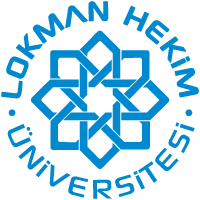| dc.contributor.author | Turk, Seyhan | |
| dc.contributor.author | Turk, Can | |
| dc.contributor.author | Temirci, Elif Sena | |
| dc.contributor.author | Malkan, Umit Yavuz | |
| dc.contributor.author | Ucar, Gulberk | |
| dc.contributor.author | Ozguven, Sukru Volkan | |
| dc.date.accessioned | 2021-06-11T07:40:31Z | |
| dc.date.available | 2021-06-11T07:40:31Z | |
| dc.date.issued | 2021-01-27 | |
| dc.identifier.uri | http://hdl.handle.net/20.500.12591/576 | |
| dc.description.abstract | Purpose Enterococcus faecalis (E. faecalis) is an important commensal microbiota member of the human gastrointestinal tract. It has been shown in many studies that infection rates with E. faecalis in gastric cancer significantly increase. It has been scientifically proven that some infections develop during the progression of cancer, but it is still unclear whether this infection factor is beneficial (reduction in metastasis) or harmful (increase in proliferation, invasion, stem cell-like phenotype) of the host. These opposed data can significantly contribute to the understanding of cancer progress when analyzed in detail. Methods The gene expression data were retrieved from Array Express (E-MEXP-3496). Variance, t test and linear regression analysis, hierarchical clustering, network, and pathway analysis were performed. Results In this study, we identified altered genes involved in E. faecalis infection in the gastric cell line MKN74 and the relevant pathways to understand whether the infection slows down cancer progression. Twelve genes corresponding 15 probe sets were downregulated following the live infection of gastric cancer cells with E. faecalis. We identified a network between these genes and pathways they belong to. Pathway analysis showed that these genes are mostly associated with cancer cell proliferation. Conclusion NDC80, NCAPG, CENPA, KIF23, BUB1B, BUB1, CASC5, KIF2C, CENPF, SPC25, SMC4, and KIF20A genes were found to be associated with gastric cancer pathogenesis. Almost all of these genes are effective in the proliferation of cancer cells, especially during the infection process. Therefore, it is hypothesized that downregulation of these genes may affect gastric cancer pathogenesis by reducing cell proliferation. And, it is predicted that E. faecalis infection may be an important factor for gastric cancer. | en_US |
| dc.language.iso | eng | en_US |
| dc.publisher | Tıp Fakültesi | en_US |
| dc.rights | info:eu-repo/semantics/openAccess | en_US |
| dc.rights | Attribution-NonCommercial-NoDerivs 3.0 United States | * |
| dc.rights.uri | http://creativecommons.org/licenses/by-nc-nd/3.0/us/ | * |
| dc.subject | Gastric cancer | en_US |
| dc.subject | Enterococcus faecalis infection | en_US |
| dc.subject | Proliferation | en_US |
| dc.subject | Cell cycle Abbreviations | en_US |
| dc.subject | Enterococcus faecalis | en_US |
| dc.subject | ROS Reactive oxygen species | en_US |
| dc.subject | CGP Cancer Genome Project | en_US |
| dc.subject | DAVID Database for Annotation | en_US |
| dc.subject | Visualization and Integrated Discovery | en_US |
| dc.subject | GSEA Gene set enrichment analysis | en_US |
| dc.subject | ES Enrichment score | en_US |
| dc.subject | NES Normalized enrichment score | en_US |
| dc.subject | NOM p value Nominal p value | en_US |
| dc.subject | FDR q value False discovery rate q value | en_US |
| dc.subject | FWER Familywise error rate p value | en_US |
| dc.title | Assessing the genetic impact of Enterococcus faecalis infection on gastric cell line MKN74 | en_US |
| dc.type | info:eu-repo/semantics/article | en_US |
| dc.contributor.department | Temel Tıp Bilimleri | en_US |















